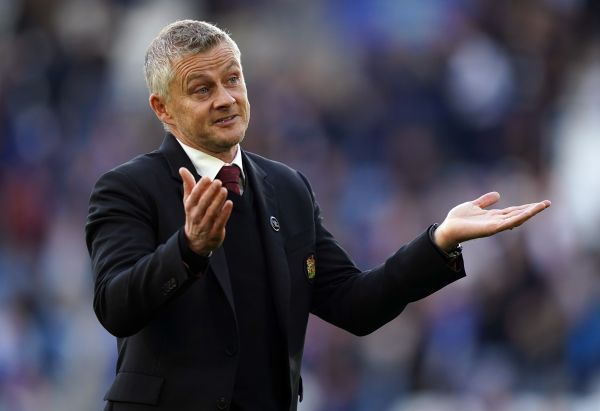Ole Gunnar Solskjaer’s place in Manchester United history was guaranteed from the moment he stretched out his right leg in injury time at the Nou Camp in 1999. If his reign as manager is in its final throes, it is more debateable if he will leave a legacy.
It may depend on his successor if his cultural reset becomes the start of something more meaningful, if the players he has either bought, such as Harry Maguire, Bruno Fernandes, Jadon Sancho, Aaron Wan-Bissaka and Raphael Varane, promoted, like Mason Greenwood and Scott McTominay, or taken to new levels, such as Marcus Rashford and Luke Shaw (his misadventures against Mohamed Salah notwithstanding) become part of a genuinely successful side, or merely features of an extended period in the wilderness.
Solskjaer may be remembered as a curiosity, a throwback appointment, the last sign of Sir Alex Ferguson exerting an influence at Old Trafford, an anachronism in an era when fewer favourite sons of clubs went on to manage them. He has been an attempt to recreate the past while forever referencing it, an enthusiast with a habit of invoking Roy Keane or Paul Scholes or Ryan Giggs.
Solskjaer’s identity has been Manchester United’s identity; the comebacks that make him talk of their DNA helped feel part of something bigger. He may leave a tradition, but not a defined style of play.
Because, after almost three years, what is Oleball? Because it is easier to define Pepball and Kloppball; disguise the faces, the names, the shirt numbers and colours and Pep Guardiola and Jurgen Klopp’s teams would still be easily identifiable. United have been notable for their shambolic state of late; before then, however, they were less distinct.
Solskjaer scoffed a few weeks ago when asked if he had an overarching philosophy. “Football is a simple game,” he replied. And perhaps it was, but very little about Guardiola, Klopp or Thomas Tuchel’s blueprints seems simple now.
Their United counterpart stands for plenty of admirable policies: faith in youth, a desire to attack, a long-term view. None of those is exactly revolutionary, however. He has given responsibility to players and accumulated a number of high-class ones: sometimes, however, the gameplan seems to be hoping that a big personality or a major talent does something special at a pivotal moment. Manchester United have enough who fall into those categories to provide the possibility that someone always will. Yet, in an age of perfectly configured teams, with well-rehearsed moves and an acute awareness of distances and duties, it feels old-fashioned.
And in many ways it is. Maybe Oleball is frozen in time: in 2007, when he last played, when Ferguson was in the Indian summer of his astonishing career. It was before the rise of Guardiola and the Spanish tiki-taka obsessives and then the Klopp-led Germanic response from the gegenpressers.
Now Solskjaer is associated with counter-attacking; but perhaps that is only by default, because his Manchester United can’t pass like the passers and can’t press like the pressers. If they can’t keep the ball as well as the best or win it back high up the pitch, a manager who would like to attack instead ends up counter-attacking. It is a formula that has brought Solskjaer some notable triumphs over Guardiola and Tuchel, if rarely Klopp, but it scarcely counts as a philosophy.
Perhaps that is the way he wants it. Solskjaer’s primary influence is obvious. He is not looking to replicate his rivals, but his role model. He has sometimes tried to present his reign as an extension of Ferguson’s, brushing over the five-year interregnum when David Moyes, Louis van Gaal and Jose Mourinho forged different teams.
But maybe Ferguson’s only overarching philosophy was winning: he was not the innovator, not the idealist. He didn’t devise systems or styles of play. He just won with them, in a way that somehow married realism with romanticism, attrition with adventure, brutal ruthlessness with beautiful storylines. But if the president of the Norwegian branch of the Ferguson fan club vacates the manager’s office at Carrington without a medal to show for his nostalgia trip, perhaps it will underline the sense the great Scot was a one-off. Ferguson could defy time, trends and tactics, until he met Guardiola’s Barcelona. But perhaps football has moved on since Solskjaer last played, and his focus on the past may have blinded him to that.





